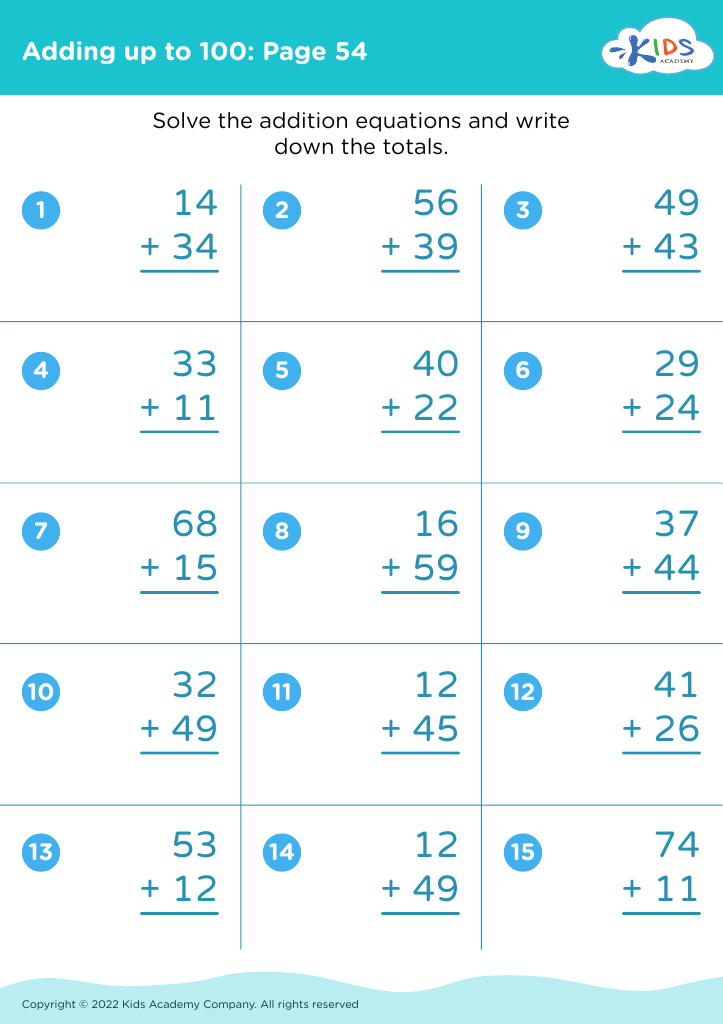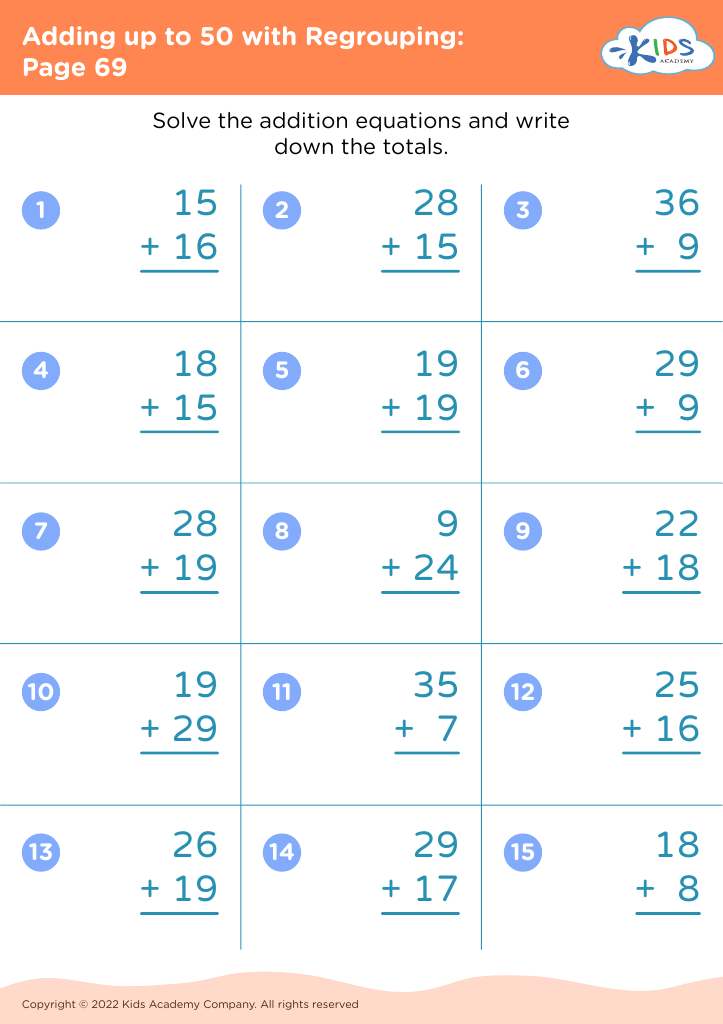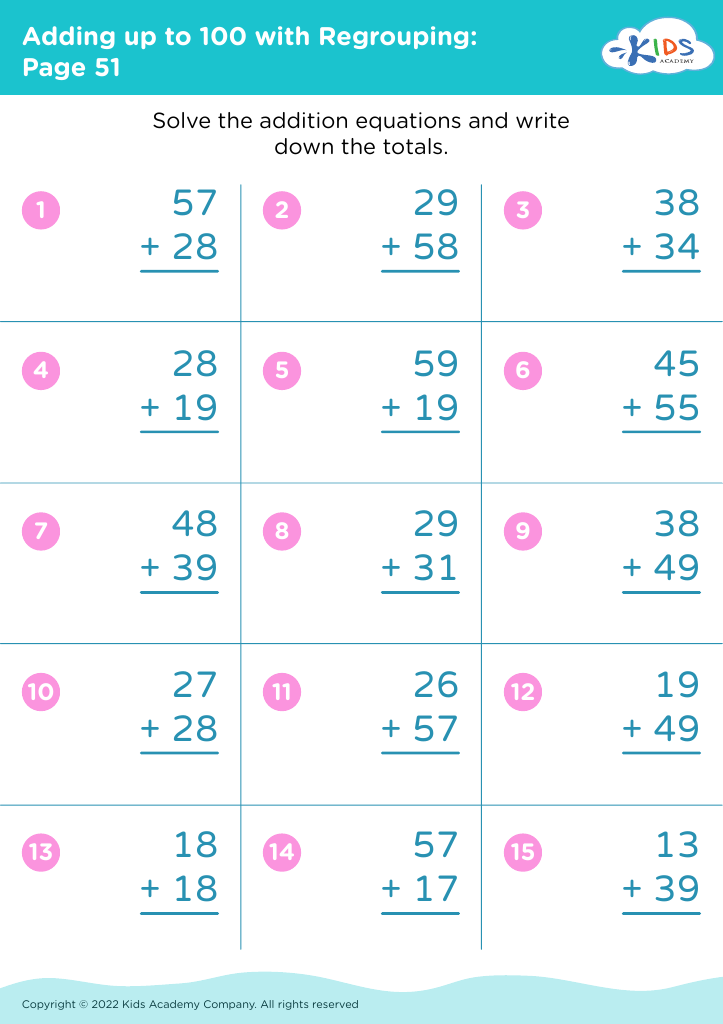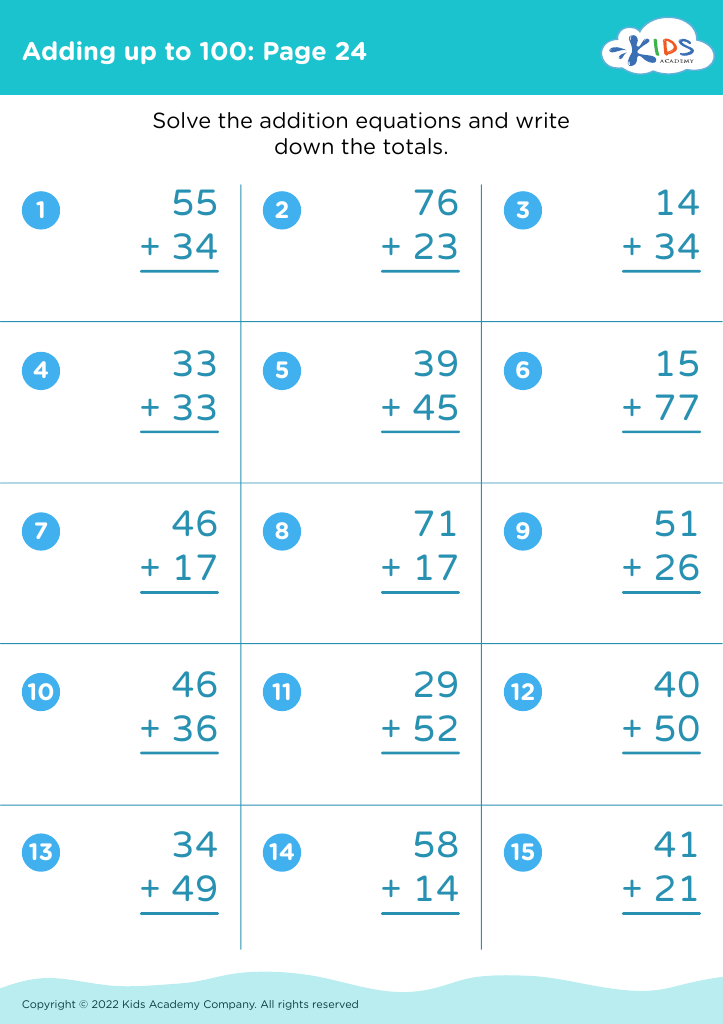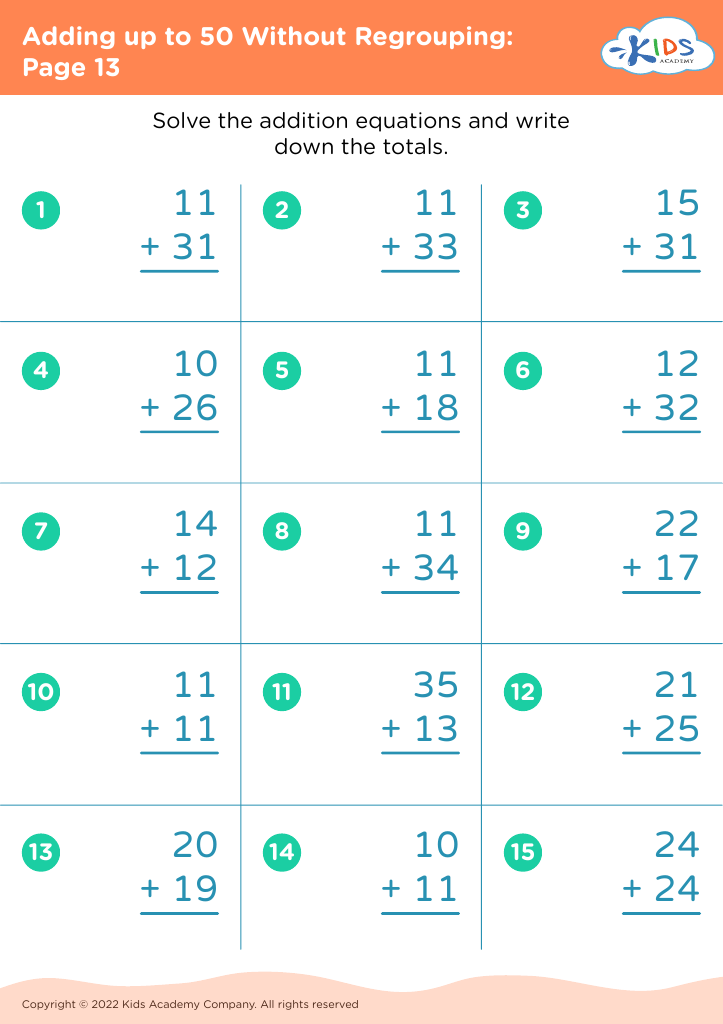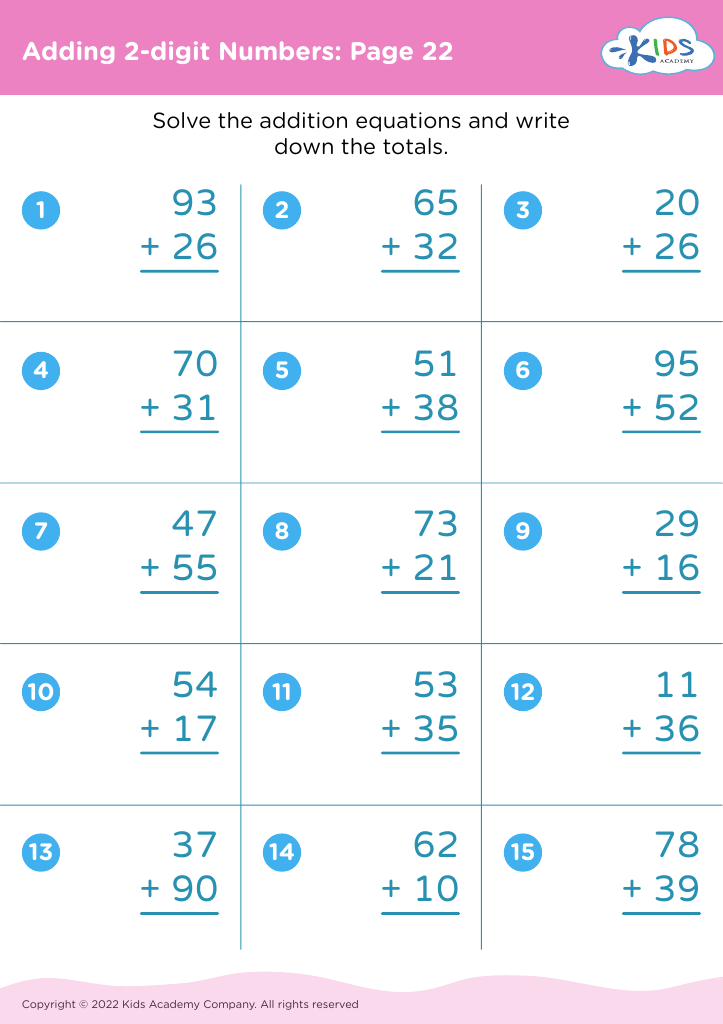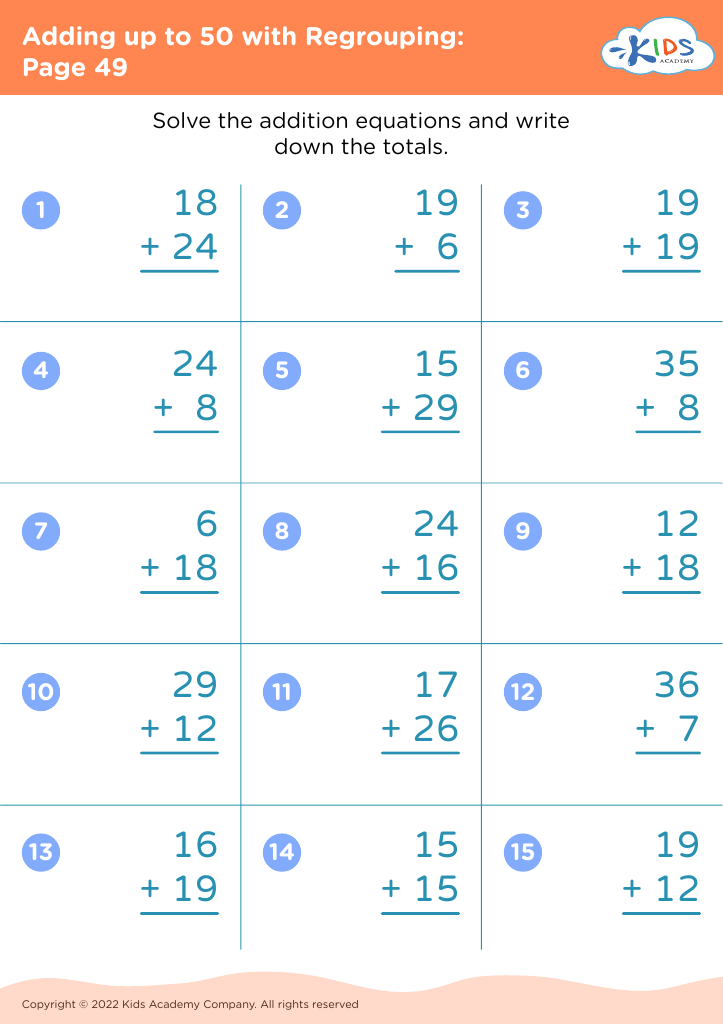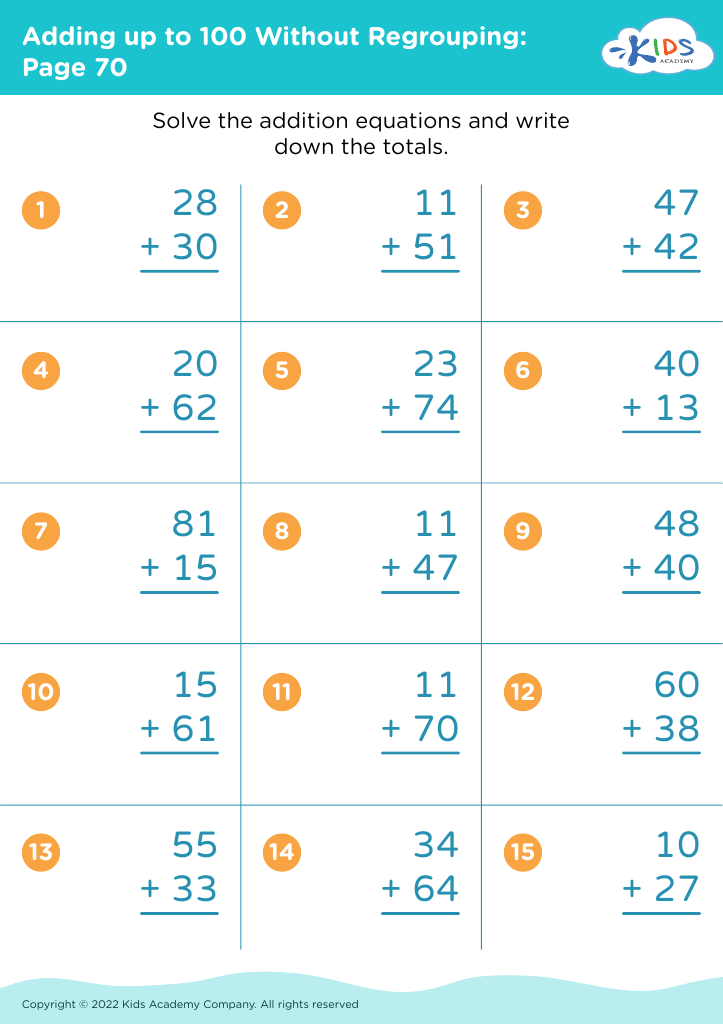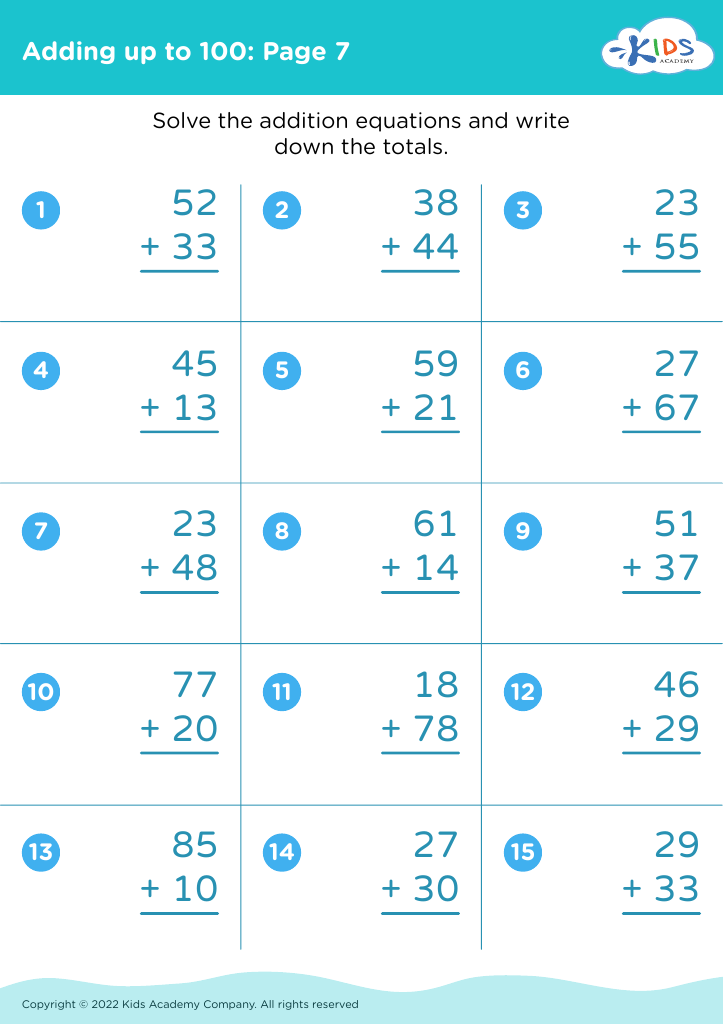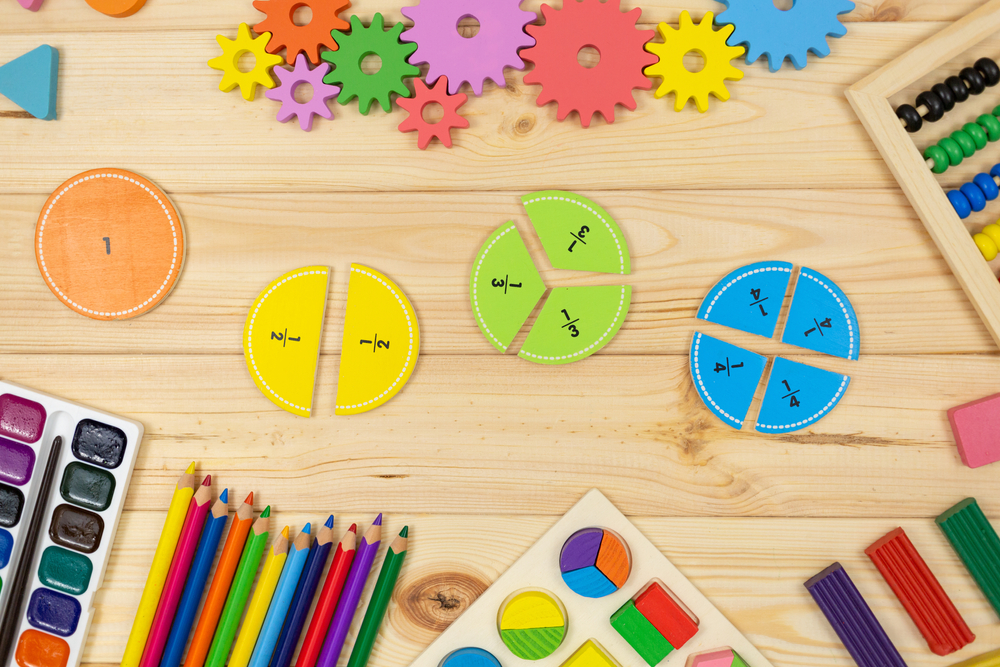Improve number recognition Math Worksheets for Ages 4-8
15 filtered results
-
From - To
Welcome to our "Improve Number Recognition Math Worksheets" page, designed specifically for children aged 4-8! These engaging and fun worksheets aim to boost your child's number recognition skills through colorful activities and interactive exercises. Our resources cater to various learning styles, helping young learners identify and understand numbers in a playful environment. With worksheets that promote visual recognition, number tracing, and counting exercises, your child will build a strong foundation in math. Perfect for homeschooling or supplementary learning, these worksheets inspire confidence in budding mathematicians. Explore our collection today and watch your child’s number skills flourish!
Improving number recognition in children aged 4-8 is crucial for their overall mathematical development and cognitive skills. During these formative years, children build the foundational skills needed for later mathematical concepts, such as addition, subtraction, and problem solving. Proficient number recognition enables kids to understand quantity, compare numbers, and develop counting abilities, which are pivotal in their transition to more advanced math.
Parents and teachers play a key role in this process. Engaging children in activities that promote number recognition can enhance their confidence and enthusiasm for learning. For instance, educational games, colorful visuals, and interactive learning can make the process enjoyable and effective. Additionally, recognizing numbers is not just about academics; it supports critical thinking and reasoning skills that benefit children in various areas of life, from organizing their belongings to managing money.
Furthermore, strong number recognition correlates with academic success in later grades, influencing children’s feelings toward math and impacting their engagement in future learning. By nurturing these skills early on, parents and teachers can help foster a positive attitude towards mathematics, ensuring children are well-prepared for future educational challenges and opportunities. In short, caring about enhanced number recognition lays the groundwork for a lifetime of learning and success.

